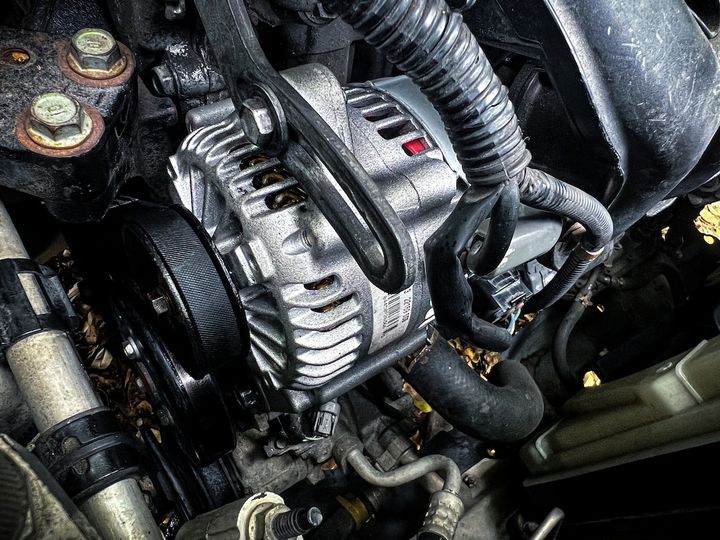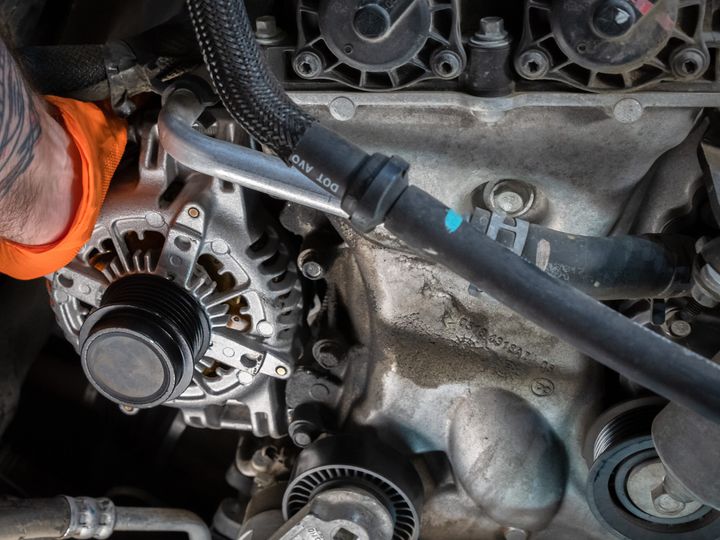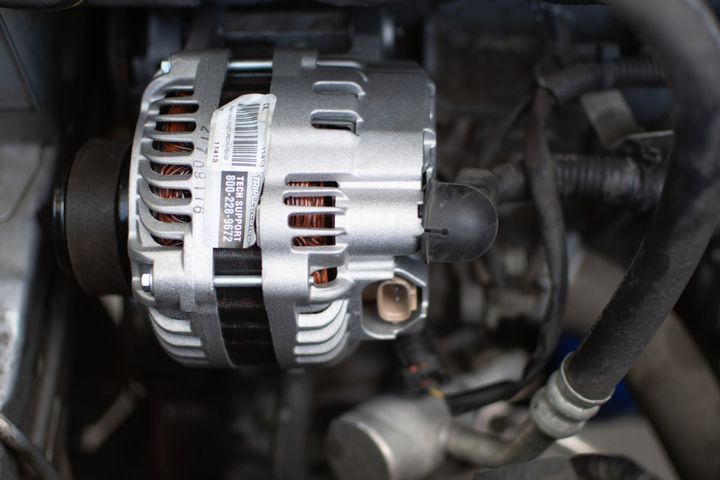


The alternator plays a vital role in a vehicle's electrical system by generating power and keeping the battery charged while the engine runs. A faulty alternator can lead to various electrical issues, making it crucial to address the problem promptly. This guide explores the typical time required for alternator replacement and the factors influencing the repair duration.

An alternator converts mechanical energy from the engine into electrical energy, powering the vehicle's electrical components and charging the battery. Recognizing signs of alternator failure, such as dimming lights, battery drainage, or unusual noises, is essential to prevent further complications.

Several factors can impact the time required for alternator replacement:
| Factor | Impact |
|---|---|
| Vehicle Make/Model | Accessibility of the alternator location affects disassembly required |
| Issue Severity | Additional component repairs (e.g., serpentine belt, wiring) extend repair time |
| Mechanic's Experience | Seasoned professionals may work more efficiently than novices |
Compact cars with transverse-mounted engines often have easily accessible alternators, while larger vehicles with longitudinally-mounted engines may require more disassembly, increasing repair time.
If only the alternator needs replacement, the job is more straightforward. However, if other components like the serpentine belt or wiring harness require repair or replacement, the overall repair time increases.
Experienced mechanics have likely encountered various vehicle makes and models, allowing them to anticipate challenges and develop efficient techniques, resulting in faster repairs.
The alternator replacement process typically involves several steps:
Preparation
Disconnecting the battery
Gathering necessary tools
Removing the old alternator
Serpentine belt removal
Disconnecting wiring harness
Unbolting the alternator
Installing the new alternator
Properly mounting the new unit
Reconnecting wiring and serpentine belt
Post-installation checks
Verifying operation and electrical output
Checking for error codes
To appreciate the importance of the alternator and the consequences of its failure, it's helpful to understand how it operates:
| Component | Function |
|---|---|
| Rotor and Stator | Convert mechanical energy to electrical energy (AC) |
| Voltage Regulator | Maintains appropriate voltage output (typically 14V for 12V systems) |
| Serpentine Belt | Drives the alternator from the engine's crankshaft |
The alternator's rotor spins within the stator, inducing an alternating current (AC) in the output windings through electromagnetic induction.
An internal or external voltage regulator monitors and adjusts the output voltage to maintain the desired level, typically around 14 volts for a 12-volt electrical system.
The alternator is driven by the engine's crankshaft through a serpentine belt or a dedicated alternator belt. A worn or loose belt can cause improper voltage output and potential failure.
Common indicators of a failing alternator include:
Dimming headlights or electrical issues due to voltage fluctuations
Battery drain and failure to charge
Unusual noises (whining, grinding, rattling) or burning smells from the alternator
When planning for an alternator replacement, consider the following costs:
Replacement alternator: $100 to $500 or more, depending on vehicle make/model and quality
Labor: $100 to $300 or more, based on job complexity and hourly rates
Additional factors affecting repair costs:
Luxury or high-end vehicles may require more expensive parts and higher labor rates
Independent repair shops and dealerships may have varying labor rates
Additional repairs (e.g., serpentine belt, wiring harness) increase costs
In some cases, replacing the entire alternator may be more cost-effective than attempting repairs, depending on the alternator's age, condition, and availability of replacement parts.
To ensure proper alternator replacement, choose a reputable repair shop or mechanic by:
Researching online reviews and ratings
Checking for ASE-certified technicians and warranties on parts and labor
Considering mobile repair services for convenience
While some may consider DIY alternator replacement, it's important to weigh the pros and cons:
| DIY | Professional |
|---|---|
| Requires mechanical skills, tools, and knowledge | Certified technicians with proper equipment |
| Potential risks and challenges | Reduced risks and warranty coverage |
| May void warranties if not done correctly | Follows manufacturer guidelines |
Proper maintenance can extend the alternator's lifespan:
Replace the serpentine belt at recommended intervals
Maintain and test the battery regularly
Inspect the electrical system, including wiring and connections
Replacing an alternator typically takes 1-2 hours or more, depending on factors like vehicle make/model, issue severity, and mechanic experience. Understanding the replacement process, recognizing failure signs, and proper maintenance can ensure a smooth repair experience and optimal electrical system performance.
Dimming headlights, battery drainage, and unusual noises (whining, grinding, or rattling) from the alternator are common signs of alternator failure. The vehicle may also have electrical issues due to voltage fluctuations.
While it is possible to replace the alternator as a DIY project, it requires mechanical skills, tools, and knowledge. Improper installation can lead to risks and potential warranty issues. Professional installation by certified technicians is recommended for reduced risks and warranty coverage.
The cost of an alternator replacement can range from $200 to $800 or more, depending on the vehicle make/model, quality of the replacement alternator, labor rates, and any additional repairs required (e.g., serpentine belt, wiring harness).
The lifespan of an alternator can vary, but most alternators are designed to last between 60,000 to 150,000 miles or 5 to 10 years with proper maintenance. Factors like driving conditions, electrical system health, and maintenance can affect its longevity.
Driving with a faulty alternator can lead to battery drainage, electrical system failure, and potential damage to other components. It is not recommended to continue driving for extended periods with a failing alternator, as it can leave you stranded.
Yes, a faulty alternator can potentially damage other electrical components in the vehicle, such as the battery, starter, and various electronic control units, due to voltage fluctuations or insufficient charging.
To extend the lifespan of your alternator, follow the recommended maintenance schedule for replacing the serpentine belt, maintain and test the battery regularly, and inspect the electrical system, including wiring and connections, for any issues.
In some cases, repairing an alternator may be more cost-effective than replacing it, depending on the alternator's age, condition, and availability of replacement parts. However, for older or severely damaged alternators, replacement is often the better option.
Yes, a faulty alternator can cause various electrical issues in a vehicle, such as dimming lights, battery drainage, and potential damage to other electrical components due to voltage fluctuations or insufficient charging.
To choose a reputable repair shop, research online reviews and ratings, check for ASE-certified technicians, inquire about warranties on parts and labor, and consider mobile repair services for convenience.

Miguel started tinkering with car radios as a teenager, fascinated by the intricate dance of wires and circuits. This passion led him to pursue a career as an automotive electrician. For the past 10 years, Miguel has tackled everything from flickering headlights to mysterious electrical gremlins. He thrives on troubleshooting electrical problems and enjoys sharing his knowledge to empower car owners to understand their vehicles better.



